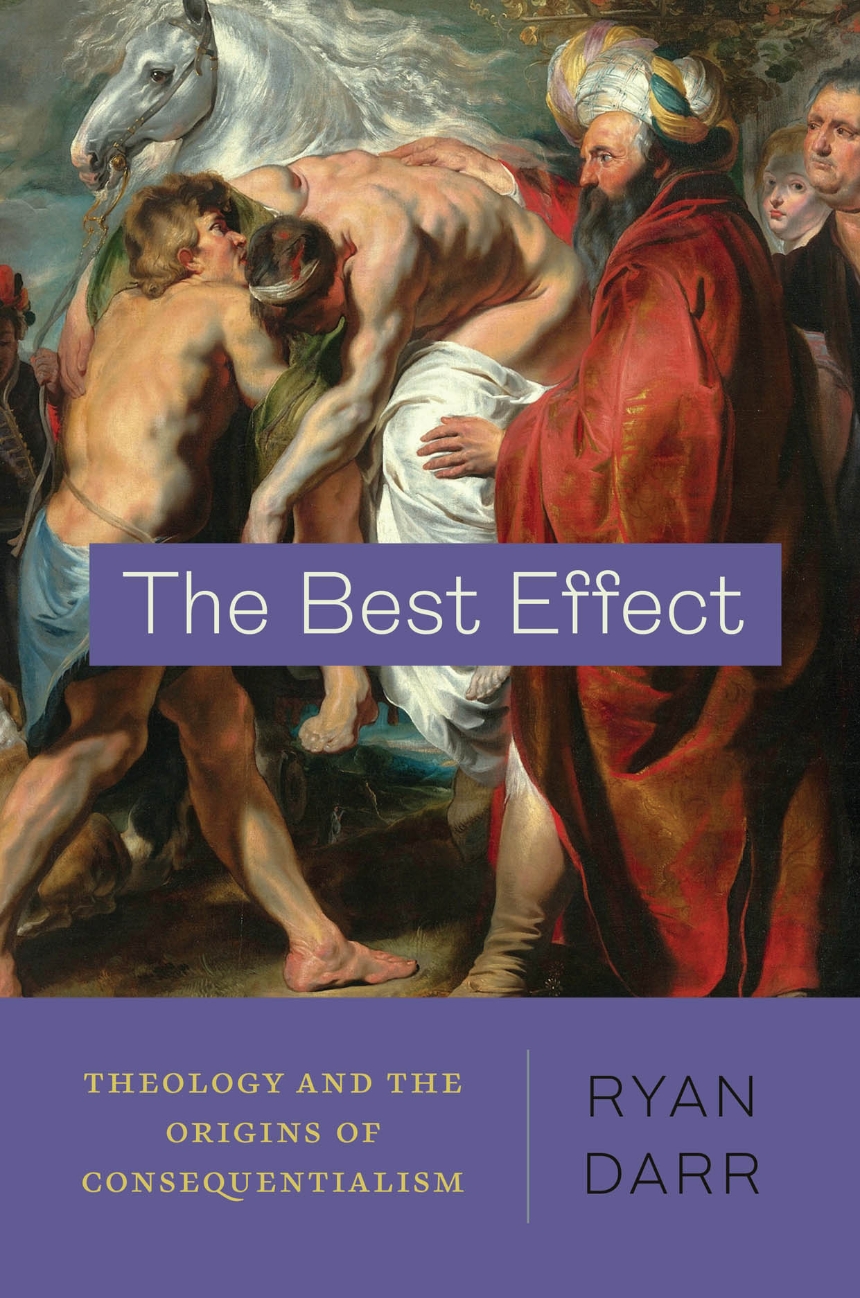The Best Effect
Theology and the Origins of Consequentialism
9780226829999
9780226829975
9780226829982
The Best Effect
Theology and the Origins of Consequentialism
A theological history of consequentialism and a fresh agenda for teleological ethics.
Consequentialism—the notion that we can judge an action by its effects alone—has been among the most influential approaches to ethics and public policy in the Anglophone world for more than two centuries. In The Best Effect, Ryan Darr argues that consequentialist ethics is not as secular or as rational as it is often assumed to be. Instead, Darr describes the emergence of consequentialism in the seventeenth century as a theological and cosmological vision and traces its intellectual development and eventual secularization across several centuries. The Best Effect reveals how contemporary consequentialism continues to bear traces of its history and proposes in its place a more expansive vision for teleological ethics.
Consequentialism—the notion that we can judge an action by its effects alone—has been among the most influential approaches to ethics and public policy in the Anglophone world for more than two centuries. In The Best Effect, Ryan Darr argues that consequentialist ethics is not as secular or as rational as it is often assumed to be. Instead, Darr describes the emergence of consequentialism in the seventeenth century as a theological and cosmological vision and traces its intellectual development and eventual secularization across several centuries. The Best Effect reveals how contemporary consequentialism continues to bear traces of its history and proposes in its place a more expansive vision for teleological ethics.
320 pages | 6 x 9 | © 2023
History: History of Ideas
Philosophy: Ethics, General Philosophy
Religion: Christianity, Philosophy of Religion, Theology, and Ethics
Reviews
Table of Contents
Introduction
Part I: The Consequentialist Moral Cosmology
Chapter 1: God and Morality in the Seventeenth Century
Chapter 2: Virtue and the Divine Life: Henry More’s Moral Theology
Chapter 3: Teleology Transformed: Richard Cumberland’s Perfectionist Natural Law
Epilogue to Part I
Part II: Evil and the Divine Consequentialist
Chapter 4: Evil and the Consequentialist Moral Cosmology: Pierre Bayle and British Ethics
Chapter 5: The Ethics of Archbishop William King’s De origine mali
Chapter 6: Shaftesbury the Theologian: Virtue as Friendship with God
Chapter 7: Theodicy and the Moral Affections in Francis Hutcheson
Epilogue to Part II
Part III: The Anglican Utilitarian Synthesis
Chapter 8: John Gay’s “Preliminary Dissertation”
Chapter 9: Edmund Law and the Anglican Utilitarian Tradition
Epilogue to Part III
Conclusion
Acknowledgments
Notes
Index
Part I: The Consequentialist Moral Cosmology
Chapter 1: God and Morality in the Seventeenth Century
Chapter 2: Virtue and the Divine Life: Henry More’s Moral Theology
Chapter 3: Teleology Transformed: Richard Cumberland’s Perfectionist Natural Law
Epilogue to Part I
Part II: Evil and the Divine Consequentialist
Chapter 4: Evil and the Consequentialist Moral Cosmology: Pierre Bayle and British Ethics
Chapter 5: The Ethics of Archbishop William King’s De origine mali
Chapter 6: Shaftesbury the Theologian: Virtue as Friendship with God
Chapter 7: Theodicy and the Moral Affections in Francis Hutcheson
Epilogue to Part II
Part III: The Anglican Utilitarian Synthesis
Chapter 8: John Gay’s “Preliminary Dissertation”
Chapter 9: Edmund Law and the Anglican Utilitarian Tradition
Epilogue to Part III
Conclusion
Acknowledgments
Notes
Index
